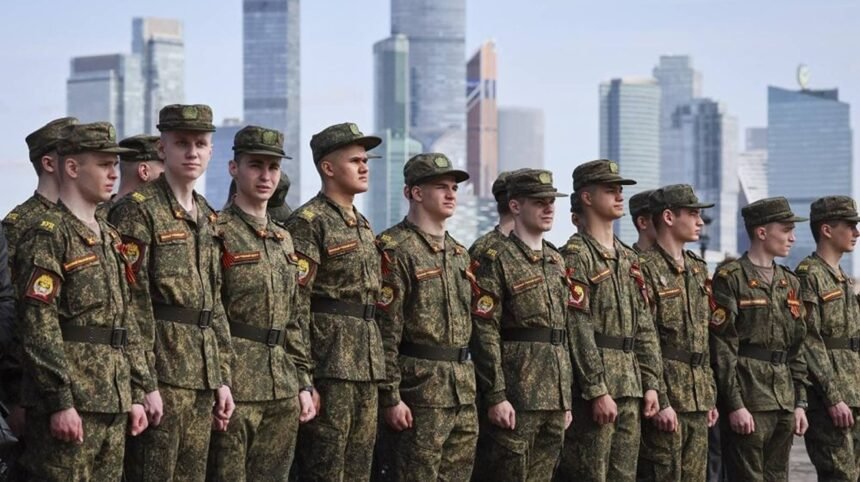Torture, humiliation, and outright murder of fellow soldiers have become a grim, routine practice in the Russian military. How did such atrocities become normalized, and why do the so-called “cancellations” go unpunished?
“They canceled my child,” laments Tatiana Bykova in a video message. Her son, Andrei, was allegedly killed by his own commanders. She names them and expresses her hatred openly. Bykova explains that the commanders first extorted money from him, demanding half of his compensation for injuries. When Andrei refused and bought a car, they demanded the car itself. After he again refused, he was brutally killed, she claims.
Despite filing complaints with the Investigative Committee of the Russian Federation and the Prosecutor General’s Office, no investigation occurred. Andrei Bykov was simply declared missing. “As I was told, he was beaten to death. He lies in a forest near Galitsynivka, in Donetsk region,” Bykova told independent Russian media outlet Verstka in exile.
In October 2025, Verstka launched a project exposing the widespread practice of torture and “cancellations” – the euphemistic term for extrajudicial killings of soldiers within the Russian army. The portal even published the names of dozens of commanders involved.
The following day, Alexander Pashchenko, a member of the ruling United Russia party, responded to public outrage by saying: “On the front line for such statements, you would be annulled,” inadvertently confirming the brutal reality of these killings.
Why Torture and Murder Occur
“The killing of fellow soldiers is only one dimension of the Russian army’s corruption. Torture is systemic,” military analyst Yuri Fyodorov told DW. Videos circulating on Telegram document extreme abuse: soldiers are dumped into pits and fed garbage for weeks or forced to ‘hug the tree,’ tied for days without food or water, at the whim of cruel commanders.
Soldiers can be shot and simply listed as missing or “killed in action,” entirely at the discretion of corrupt officers. Reasons for “cancellation” range from insubordination, minor disciplinary issues, alcohol consumption, disputes with officers, or refusal to hand over part of their pay.
“If human beings are treated as disposable assets and sent to hopeless battles, it is inevitable that officers will also kill in the background for trivial infractions or financial defiance,” explains military expert Jan Matveyev.
Psychoanalyst Alina Putilovskaya highlights the systemic culture of cruelty: officers vent their aggression on subordinates due to pressure from their own superiors, projecting dominance and invulnerability while humiliating those below. This creates a cycle of fear, guilt, and helplessness among soldiers, leaving them powerless to protect their comrades.
“Cancellation” Instead of Discipline
Fyodorov blames the phenomenon on corrupt and undisciplined officers, many of whom remain in the military due to lack of civilian employment opportunities and supplement their meager pay through extortion. Mercenaries and convicted criminals recruited for the war in Ukraine have exacerbated the brutality. Early examples of extreme violence include videos from November 2022 showing Wagner mercenaries killing a fellow soldier with a sledgehammer.
Matveyev argues that the main cause of these “cancellations” is the absence of genuine military discipline and a functioning chain of command. Impunity reigns, emboldened by the Kremlin’s failure to punish grave war crimes such as those in Bucha and Mariupol. Soldiers know they can kill or be killed without consequences, reinforcing chaos and cruelty within the ranks.
Experts agree that the Russian army’s operational capacity depends on a system of terror, exploitation, and impunity. Soldiers are treated as expendable resources, stripped of agency and forced into slavish obedience. “The entire functioning of the Russian military is built on violence and exploitation,” emphasizes Fyodorov.
Psychoanalyst Putilovskaya adds that “cancellation” is not merely punishment—it is a tool of control and intimidation. Without emotional bonds, coercion escalates into extreme cruelty, normalizing murder and abuse within the ranks.
Matveyev also notes that Russian soldiers often lack understanding of what they are fighting for, unlike Ukrainian forces defending their homeland. “Most Russian soldiers are painfully aware that they are participating in heinous war crimes, yet they are trapped in a system that rewards violence and punishes dissent,” he states.







